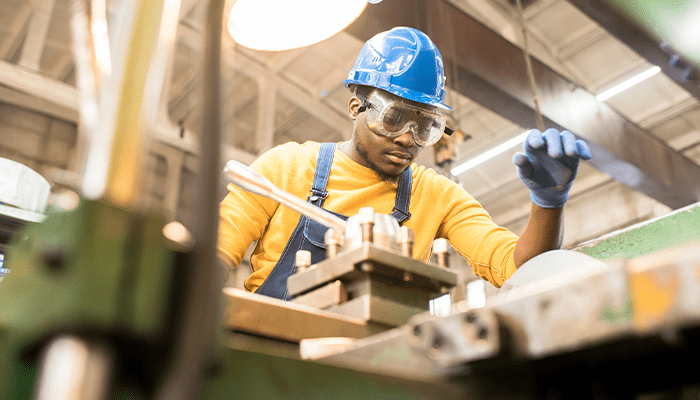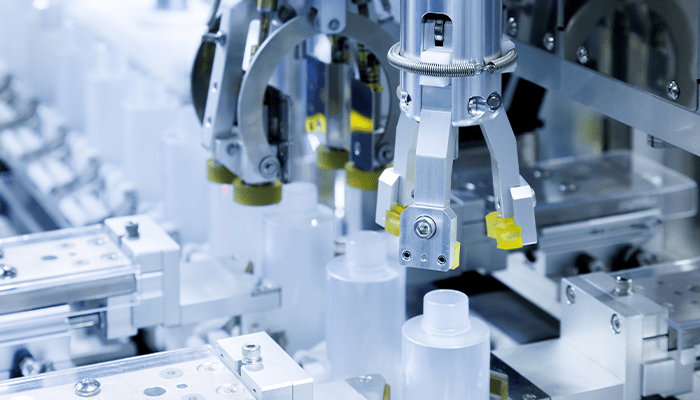
The Future of Automation in Manufacturing
The manufacturing industry will continue to see automation growth. Manufacturing has struggled to keep pace with the reshoring of products previously manufactured offshore, as well as new demand. These have created issues with overall capacity becoming a constraint. Automation will continue to be implemented to increase the available capacity. The following are trends that will help shape the future of automation in manufacturing:
- Industry 4.0 and Smart Factories: The 4th industrial revolution referred to as Industry 4.0 is the integration of a variety of technologies such as the Internet of Things (IoT), and the use of artificial intelligence (AI). The rise of smart factories will continue to leverage these technologies to create a connected and intelligent manufacturing ecosystem.
- Advanced Robotics: Robotics in manufacturing will likely expand with the development of more sophisticated and collaborative robots (cobots). These cobots work alongside humans, performing tasks that require precision, strength, or speed. Robotic automation is expected to increase in industries such as automotive, electronics, and logistics, providing manufacturers with added much-needed capacity.
- Artificial Intelligence (AI) and Machine Learning: AI and machine learning technologies will continue to be integral to manufacturing processes. These technologies allow for optimizing production schedules, providing information to help predict equipment failures, and improving overall efficiency. AI algorithms enable manufacturers to analyze large datasets that can identify patterns. The information assists in making real-time decisions and enhances manufacturing systems' adaptability and responsiveness.
- 3D Printing/Additive Manufacturing: Additive manufacturing, commonly known as 3D printing, allows manufacturers to produce complex and customized parts with reduced waste. In some industries, 3D printing technology is increasingly being adopted in manufacturing for rapid prototyping, small-scale production, and even large-scale production.
The manufacturing industry will continue to advance the use of additive manufacturing in its overall operations, adding capability and capacity. - Augmented Reality (AR) and Virtual Reality (VR): AR and VR technologies are finding applications in training, maintenance, and design in manufacturing. They can provide workers with real-time information, improve training processes, and enhance collaboration by enabling remote assistance and virtual collaboration.
- Cybersecurity in Manufacturing: As manufacturing becomes more connected, ensuring the cybersecurity of automation systems is crucial. Manufacturers will need to invest in robust cybersecurity measures to protect sensitive data, intellectual property, and the integrity of their automated systems.
It should be noted that while automation brings many benefits, challenges include workforce adaptation, cost, and the need for ongoing investment in technology and skills. Manufacturers will require additional staff knowledge and skills, requiring manufacturers to invest in upskilling their workforce to keep pace with the addition of new technologies. The future of automation in manufacturing will likely involve a balance between human workers and machines, with a focus on leveraging technology to enhance productivity, quality, and sustainability. Looking for more manufacturing insights, subscribe to our blog.
Featured News & Insights

The manufacturing industry is changing fast. With record-breaking investments in new facilities, cutting-edge technology, and a push for smarter, more sustainable operations, there’s a lot to be...

Manufacturing is a cornerstone of the global economy, encompassing industries that transform raw materials into finished goods. From automotive and aerospace to electronics and consumer products, the...

A recent Forbes story on key topics for manufacturers going into 2025 mentioned several, but the overall theme was the advancement of AI technologies in the manufacturing industry. Following is a...